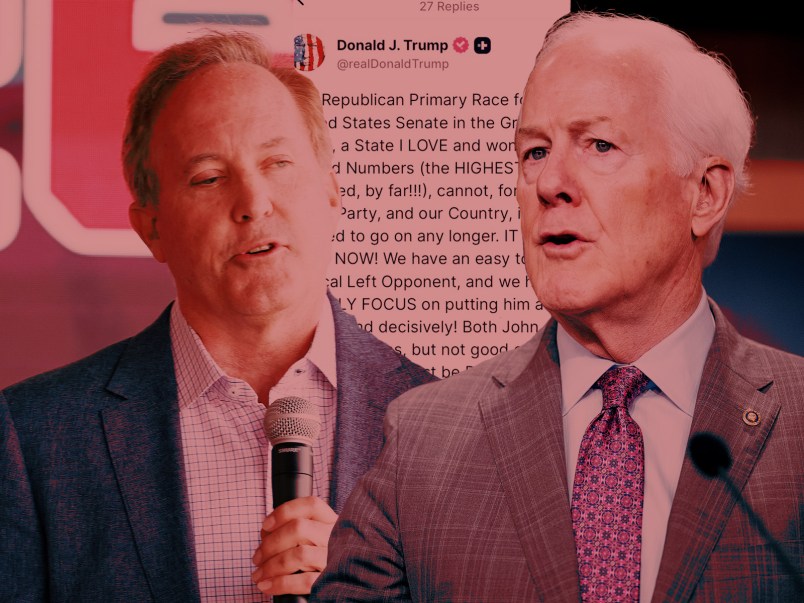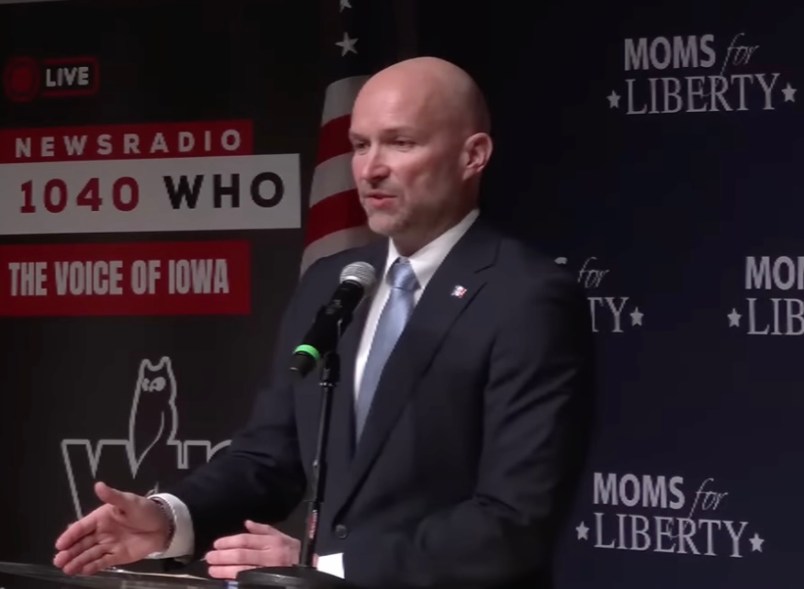
This article is part of TPM Cafe, TPM’s home for opinion and news analysis.
Paramount Global, which owns CBS News, recently made a perilous decision to settle the lawsuit that Donald Trump brought against them last year. Trump’s suit asserted that CBS’ 60 Minutes illegally edited a Kamala Harris interview in order to hurt his chances in the 2024 presidential race. Before settling, Paramount validly argued Trump’s legal theories were meritless and violated the company’s First Amendment rights. Yet the media conglomerate settled the suit for $16 million, which it reportedly will pay toward Trump’s presidential library plus other costs, although Trump asserted that the settlement is worth double that sum. The settlement decision by Paramount’s board of directors carries huge legal and reputational risks — including potential bribery charges — while degrading the independent investigative journalism Americans rely on.
Many legal experts agreed from the beginning that Paramount had a strong defense, citing constitutional protections to make editorial decisions. But the company’s choice to settle reportedly appears to have hinged on an unrelated $8 billion merger with Skydance Media. If the Federal Communications Commission (FCC), led by Trump ally Brendan Carr, doesn’t approve this merger by October, the deal could fall apart and board chair Shari Redstone could lose a reported $2 billion payout.
While Trump’s lawyers and Carr deny the lawsuit is related to these FCC proceedings, Paramount staff appeared to see a link, as did Trump himself. And as Paramount’s board struggled with the prospect of facing bribery charges if it settled the suit, internal pressures for CBS News to provide more favorable coverage of Trump sparked major internal discord, resulting in two high-profile news division resignations.
Paramount found itself in a tough situation, no doubt. But the grave risks of settling with Trump are bad for the business, its shareholders, and its employees — and it represents a dangerous sign for democracy. These stakes are clear in the potential legal risks Paramount is still facing post-settlement.
First, three U.S. senators — Elizabeth Warren (D-MA), Bernie Sanders (I-VT), and Ron Wyden (D-OR) — warned Redstone in a May 19 letter that under federal law, paying Trump to help finalize merger approval could potentially be bribery of a public official. Such a charge has a five-year statute of limitations. The senators suggested that any “scheme to curry favor with the Trump administration” compromises journalistic independence and raises corruption concerns. Immediately after the settlement, Wyden reupped these issues and asked state prosecutors to pursue criminal charges, while Warren called for an investigation.
State-level problems have surfaced, too. In California, two powerful senators who chair relevant committees already launched an inquiry, inviting two former CBS News executives to testify. The lawmakers suggested a settlement could violate California’s laws against, for example, unfair competition and misuse of corporate funds, while penalizing competitors who resist political interference, distorting the media marketplace, and chilling the investigative journalism Californians depend on.
On top of that, Paramount’s shareholders have already threatened legal action. The nonprofit Freedom of the Press, which owns Paramount stock, promised to sue the company if it settled with Trump and recently hired two powerhouse lawyers in preparation. On June 5, the nonprofit told Paramount’s board a settlement could cause “catastrophic” harm to the company and destroy shareholder value. They also said a settlement could illegally breach the board’s duties of care and loyalty to shareholders, constitute bribery, and violate anti-competition laws in several states — which could multiply legal fees and liability.
Other long-term hazards abound. For example, a future president could take a very different look at the matter than Trump. A future Congress could hold high-profile hearings and refer the matter for Department of Justice investigation. A future DOJ could investigate potential lawbreaking, including the bribery angle. An FCC under the stewardship of a new chair could also launch investigatory proceedings. And attorneys involved in the settlement could face state disciplinary proceedings or disbarment if there is a finding that they acted illegally or unethically.
Aside from the legal risks, the trusted brand of CBS News and its credibility with the American people will likely crater. More broadly, the settlement represents yet another example of independent media companies kowtowing to an administration that appears intent on weakening perceived enemies. As the editorial board of the conservative Wall Street Journal wrote: “The President is using government to intimidate news outlets that publish stories he doesn’t like. It’s a low move in a free country with a free press.”




